52 Books Published by University of the West Indies Press on AALBC — Book Cover Collage
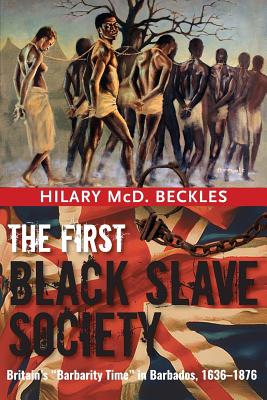 The First Black Slave Society: Britain’s Barbarity Time in Barbados, 1636-1876
The First Black Slave Society: Britain’s Barbarity Time in Barbados, 1636-1876
by Hilary BecklesUniversity of the West Indies Press (Sep 30, 2016)
Read Detailed Book Description
Book describes the brutal Black slave society and plantation system of Barbados and explains how this slave chattel model was perfected by the British and exported to Jamaica and South Carolina for profit. There is special emphasis on the role of the concept of white supremacy in shaping social structure and economic relations that allowed slavery to continue. The book concludes with information on how slavery was finally outlawed in Barbados, in spite of white resistance.
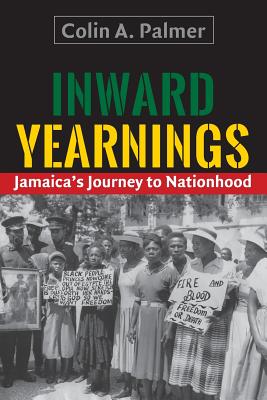 Inward Yearnings: Jamaica’s Journey to Nationhood
Inward Yearnings: Jamaica’s Journey to Nationhood
by Colin A. Palmer
University of the West Indies Press (Sep 30, 2016)
Read Detailed Book Description
"Inward Yearnings: Jamaica’s Journey to Nationhood is a pioneering case study of an Anglo-Caribbean island’s search for a racial selfhood, its nervous embrace of its African heritage and ultimately a nationalism that reflected those inner longings. These complex and interrelated processes manifested themselves with the founding of the Universal Negro Improvement Association by Marcus Garvey in 1914,the emergence of Rastafarianism and the Back to Africa Movement in the 1930s, the People’s National Party’s adoption of self-government as its goal in 1940, and the appearance of numerous black consciousness groups in the 1950s. The first half of the book excavates the roots of these inner struggles, and their expressions and roles in Jamaica’s society and culture. The second half examines Jamaica’s entry into the West Indies Federation in 1958 and its secession by means of a referendum in 1961. The Colonial Office had convinced the ten federating units that they were all too small to make their individual independence a viable option. The Jamaicans attempted to subsume their nationalism in formation into a larger West Indian nationalism but the process failed. A federal union had been constructed upon a watery foundation. Palmer’s book is a carefully researched history of the federation’s failure and of Jamaica’s decision to affirm its own political identity and selfhood. The book is based largely on manuscript sources located in the British National Archives at Kew Gardens, the Jamaica Archives in Spanish Town and the National Archives of the United States located in College Park. The Jamaican newspaper the Daily Gleaner also constituted an invaluable source." Publisher websit
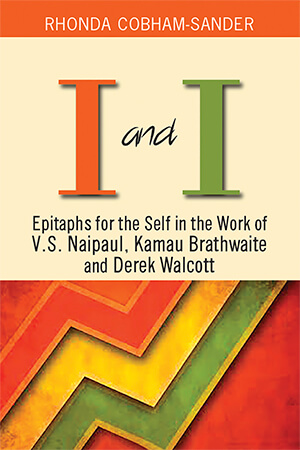 I and I: Epitaphs for the Self in the Work of V.s. Naipaul, Kamau Brathwaite and Derek Walcott
I and I: Epitaphs for the Self in the Work of V.s. Naipaul, Kamau Brathwaite and Derek Walcott
by Rhonda Cobham-SanderUniversity of the West Indies Press (Apr 30, 2016)
Read Detailed Book Description
When V.S. Naipaul, Kamau Brathwaite and Derek Walcott published their first literary efforts there was no such thing as a Caribbean literary tradition. By the end of the twentieth century their work had begun to set the standard for literary production across the English-speaking world and they knew it would outlive them. The epitaphs for themselves and others written into their later works are meant to pre-empt their judgement by others, to tutor us in the proper ways of reading their achievements and to insert into the literary tradition, against the odds, a record of their subjectivity. This endless tautological conversation of I with I conceals a drift towards aesthetic stagnation but it has allowed all three authors the licence to experiment with new forms and to face up to issues that in their earlier work they were too insecure or too inexperienced to confront. The elegant close readings Rhonda Cobham-Sander offers here from Naipaul’s A Way in the World, Brathwaite’s Barabajan Poems and Walcott’s Omeros demonstrate how the project of writing one’s critical epitaph becomes an overriding thematic concern as well as an important source of stylistic innovation in the work of all three writers. From personal testimony, to analytic insight, to theoretical interventions, her essays explore and celebrate the unique relationship the three writers forged with each other and with their Caribbean readers over the course of their careers.
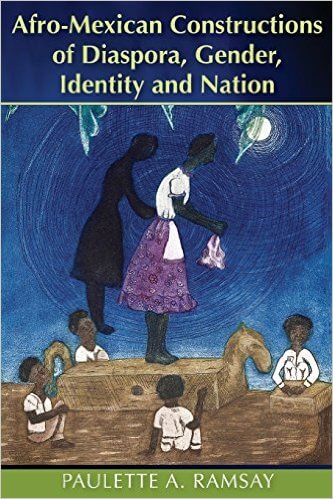 Afro-mexican Constructions of Diaspora, Gender, Identity and Nation
Afro-mexican Constructions of Diaspora, Gender, Identity and Nation
by Paulette A. RamsayUniversity of the West Indies Press (Apr 30, 2016)
Read Detailed Book Description
Paulette Ramsay’s study analyses cultural and literary material produced by Afro-Mexicans on the Costa Chica de Guerrero y Oaxaca, Mexico, to undermine and overturn claims of mestizaje or Mexican homogeneity. The interdisciplinary research draws on several theoretical constructs: cultural studies, linguistic anthropology, masculinity studies, gender studies, feminist criticisms, and broad postcolonial and postmodernist theories, especially as they relate to issues of belonging, diaspora, cultural identity, gender, marginalization, subjectivity and nationhood. The author points to the need to bring to an end all attempts at extending the discourse, whether for political or other reasons, that there are no identifiable Afro-descendants in Mexico. The undeniable existence of distinctively black Mexicans and their contributions to Mexican multiculturalism is patently recorded in these pages. The analyses also aid the agenda of locating Afro-Mexican literary and cultural production within a broad Caribbean aesthetics, contributing to the expansion of the Caribbean as a broader cultural and historical space which includes Central and Latin America.
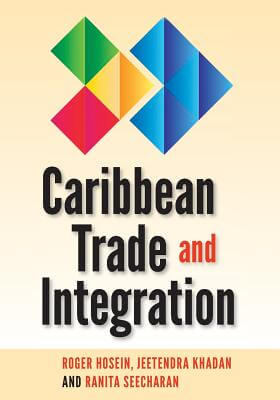 Caribbean Trade and Integration
Caribbean Trade and Integration
by Roger Hosein, Jeetendra Khadan, and Ranita SeecharanUniversity of the West Indies Press (Dec 16, 2015)
Read Detailed Book Description
Regional integration has emerged as perhaps the most controversial issue within the Caribbean. While some progress in implementing economic reforms, both at the national and regional level are observable, the efforts made by Caribbean policymakers to strengthen regional cooperation and integration have not yielded the envisioned level of economic transformation. Caribbean Trade and Integration distinguishes itself by combining history with sound economic and policy analysis. Moreover, this book reviews a survey of several key historical studies that have identified the urgent need for a change in policy action among Caribbean Community member states over time and that have outlined many pointed policy suggestions to effect the same. The book culminates by addressing the need to unpause the Caribbean Single = Market and Economy and proposes a number of initiatives to generate this outcome. While this book is written to appeal to an academic audience, it also provides essential reading for policy practitioners, stakeholder groups, the CARICOM Secretariat and those interested in the dynamics of Caribbean regional integration.
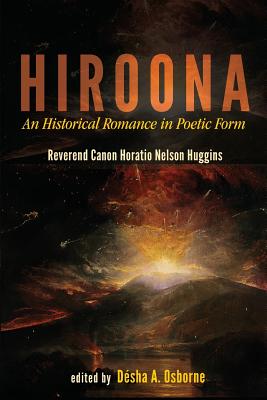 Hiroona: An Historical Romance in Poetic Form
Hiroona: An Historical Romance in Poetic Form
by Horatio Nelson HugginsUniversity of the West Indies Press (Nov 30, 2015)
Read Detailed Book Description
With over nine thousand lines of rhyming verse, Hiroona: An Historical Romance in Poetic Form tells the fictionalized story of the "Second Carib War" of 1795-97 between Great Britain and the people then known as the Black Caribs with the aid of France. The poem is the vision of St Vincent-born Anglican priest Horatio Nelson Huggins (1830-95), who blends the official history of the war with local legends collected from those who fought on each side to create an exciting narrative with heroic characters and an almost organic critique of the colonial project in the Caribbean. The Caribs, led by chiefs Duvalle, Chetwaye (based on Chief Joseph Chatoyer) and Chetwaye’s son Warramou, fight to expel the British from the island and regain control. Woven into the narrative is the love triangle of Warramou, Carib princess Ranee and the Scottish soldier Crayton. Huggins’s work offers a meaningful contribution to the evolution of a unique kind of West Indian consciousness at the end of the nineteenth century. Hiroona has until recently remained relatively unknown, and this edition will be the first available since its posthumous publication in 1930. The text includes a historical essay that places Hiroona in various contexts and considers its significance to Caribbean literature.
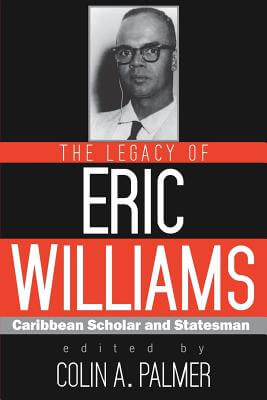 The Legacy of Eric Williams
The Legacy of Eric Williams
by Colin A. Palmer
University of the West Indies Press (Nov 19, 2015)
Read Detailed Book Description
This is the first comprehensive historical assessment of the career of Eric Williams, the scholar and statesman. Born in Trinidad and Tobago in 1911, Eric Williams published his classic work Capitalism and Slavery in 1944 and several other books thereafter. A historian of outstanding talent, Williams’s scholarly work has been the subject of various international conferences. He introduced a new era in the study of slavery, focusing less on the oppressive conditions of that odious system of labour and more on its role in the construction of Western capitalism. Historians are still animated by Williams’s conclusions, and the questions he posed are still relevant to our mature understanding of the ways in which the African slave trade and slavery shaped the economies of a variegated group of societies. Eric Williams was also the head of government of Trinidad and Tobago from 1956 to 1981. He became the premier of his country in 1961 and its first prime minister in 1962. He died in 1981 after dominating the politics of his country for a quarter of a century. This volume also includes analyses of Williams’s enormous contributions to the making of the modern Caribbean as a statesman and a scholar
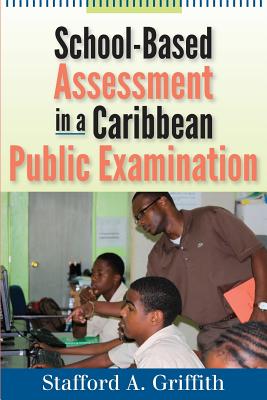 School-Based Assessment in a Caribbean Public Examination
School-Based Assessment in a Caribbean Public Examination
by Stafford A. GriffithUniversity of the West Indies Press (Oct 01, 2015)
Read Detailed Book Description
This work explores the historical, conceptual, theoretical and practical dimensions of school-based assessment (SBA) in a public examination. In part 1, Griffith offers the history and context for the exploration of the issues of SBA in a public examination and reviews the history and concept of public examinations and the evolution and mandate of the Caribbean Examinations Council as a public examinations board serving member countries of the region. In part 2, he provides the foundations for a discourse of the concept, theory and practice of SBA in the context of the public examinations of the Caribbean Examinations Council and explores key issues in SBA in a public examination. In part 3, he examines a number of new directions and practices related to SBA in a public examination, for example, the use of an alternative (external) paper to assess the same competencies developed and assessed in the SBA undertaken in schools, the implementation and assessment of group work in SBA, the use of a single project for the SBA of a cluster of subjects, and ways in which the benefits of SBA in a public examination may guide practice at all levels of the education system to improve student learning and assessment.
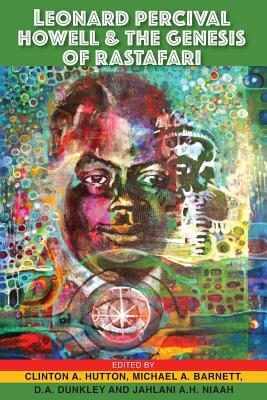 Leonard Percival Howell and the Genesis of Rastafari
Leonard Percival Howell and the Genesis of Rastafari
by Clinton A. Hutton, Michael A. Barnett, Jahlani A. H. Niaahand, and D. A. DunkleyUniversity of the West Indies Press (Sep 30, 2015)
Read Detailed Book Description
"The contributors to this volume have found the language and concepts by which to interpret Leonard Howell and the origins of the Rastafari movement in the 1930s. This volume is richly documented from the archives, and from interviews, and is informed by multidisciplinary methods, so the reader is treated to an authoritative and comprehensive collection of essays. "Leonard Howell was persecuted over five decades by the British colonial state and by Jamaican governments since independence in 1962. It is in this context that Howell defined the main tenets of the movement, a movement that has now spread globally. All the major themes of his thinking, such as African redemption, the divinity of Haile Selassie, repatriation, and the struggle for freedom and self-reliance are discussed. Howell challenged British colonialism and Jamaican elites in a very different way from the approaches used by the middle-class intelligentsia. He focused, rather, on a new way of seeing God, King and self, thus creating an alternative way of being in the world. Developing Marcus Garvey’s focus on Africa, Leonard Howell and his followers reclaimed their ancestral identity from the dehumanized condition left by British slavery and colonialism. Howell’s communal settlement on ’Pinnacle’ was an alternative communal space for Rastafari artisans, musicians and peasant farmers."-Rupert Lewis, Professor Emeritus, Department of Government, University of the West Indies, Mona, Jamaica
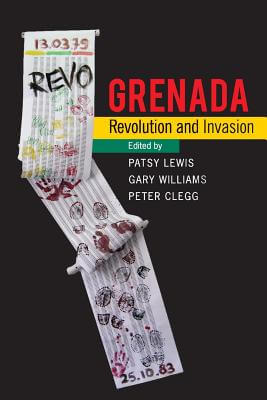 Grenada: Revolution and Invasion
Grenada: Revolution and Invasion
by Patsy Lewis, Gary Williams and Peter CleggUniversity of the West Indies Press (Sep 28, 2015)
Read Detailed Book Description
Grenada: Revolution and Invasion is a wide-ranging collection of essays by academics in the Caribbean, the United Kingdom and the United States, each with a unique perspective on the revolution and its effects.
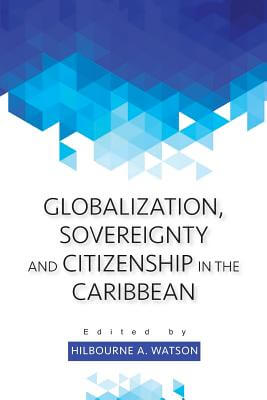 Globalization, Sovereignty and Citizenship in the Caribbean
Globalization, Sovereignty and Citizenship in the Caribbean
by Hilbourne A. WatsonUniversity of the West Indies Press (Sep 17, 2015)
Read Detailed Book Description
The contributors to Globalization, Sovereignty and Citizenship in the Caribbean variously address topics and issues of colonial and postcolonial citizenship, identity and belonging; sovereignty and the body politic and unresolved class and other contradictions of the Haitian Revolution, Commonwealth Caribbean societies, Cuba, and the non-independent territories of Puerto Rico and the Netherlands Antilles, the French Antilles, and the Cayman Islands. There are degrees of emphasis on the contradictory relationship between globalization and national processes, with attention to class, state, nation, gender, racialization, culture, migrant labour and other political concerns. Other topics include ways in which the United States, the United Kingdom, France and the Netherlands influence conceptions of state security and governance and how cultural and ideological commitments to democracy and sovereignty reinforce certain sovereignty myths and contribute to the assertion that globalization represents a threat to sovereignty, democracy and freedom in the Caribbean. The deepening of the integration of the entire Caribbean into the contradictory processes of globalization suggests that sovereignty, democracy, citizenship, belonging and identity as experienced in the region are best theorized as unfinished (open-ended) projects.
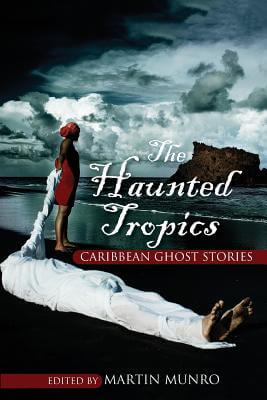 The Haunted Tropics: Caribbean Ghost Stories
The Haunted Tropics: Caribbean Ghost Stories
by Martin MunroUniversity of the West Indies Press (Aug 28, 2015)
Read Detailed Book Description
"Every island of the Caribbean is the site of a deep haunting. Before Columbus, the various indigenous peoples - the Arawaks, the Caribs, the Tainos - lived in relative harmony with the land, the sea and each other. Everything changed in 1492: the Amerindian people quickly were decimated, their presence erased by disease, wars and overwork. These are the Caribbean’s oldest ghosts, almost invisible in history yet still present in the form of place names, fragments of language, ancient foods, and pockets of descendants speckling the islands…"Given the history of the Caribbean, it is not surprising that much of the region’s literature bears a haunted quality: ghosts are everywhere, be they of the Amerindians, the African ancestors, the slaves, the planters, the indentured workers, the victims of dictatorships, foreign invasions and natural disasters, or the modern exiles. To a large extent, Caribbean fiction in general is a collection of ghost stories, tales of haunted people, memories and places…" This book brings together some of the region’s leading contemporary authors, from the anglophone, francophone and hispanophone Caribbean, as well as the United States and Canada, and constitutes a unique, transcultural anthology in which living authors evoke the dead, the undead and the dying, the ghosts that haunt their experiences and their works as modern writers of the Caribbean."-From the introduction by Martin Munro
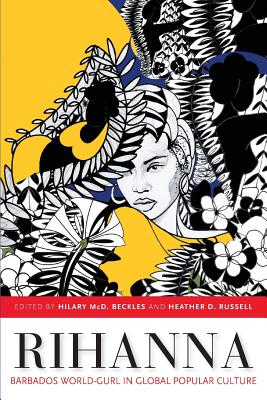 Rihanna: Barbados World-Gurl in Global Popular Culture
Rihanna: Barbados World-Gurl in Global Popular Culture
by Hilary BecklesUniversity of the West Indies Press (Mar 01, 2015)
Read Detailed Book Description
Rihanna is arguably the most commercially successful Caribbean artist in history. She is Barbadian and has been unwavering in publicly articulating her national and regional belongings. Still, there have been varied responses to Rihanna’s ascendancy, both in the Barbadian public and Caribbean community at large - responses that reveal as much about our own national/regional anxieties as they do about the artist herself. The cutting edge, boundary-transgressing, cultural icon Rihanna is certainly subject to moralistic scrutiny from her global audiences as well; however, the essays in this collection purposely seek to de-centre the dominance of the Euro-American gaze, focusing instead on considerations of the Caribbean artist and her oeuvre from a Caribbean postcolonial corpus of academic inquiry. To this end, Rihanna: Barbados World Gurl in Global Popular Culture brings together U.S. and Caribbean based scholars to discuss issues of class, gender, sexuality, race, culture, and economy. Using the concept of diasporic citizenship as a central theoretical frame, this book intervenes in current questions of national and transnational circuits of exchange as they pertain to the commoditization and movement of culture, knowledge, values, and identity. The contributors- drawing from literature, history, musicology, sociology, cultural studies, feminist, gender, and queer studies, the creative/cultural industries and political science - approach the subjects of Rihanna, globalization, gender and sexuality, commerce, transnationalism, Caribbean regionalism, and Barbadian national identity and development, from different disciplinary and at times radically divergent perspectives. At the same time, the essays collectively work through the limitations, possibilities and promise of our best Caribbean imaginings.
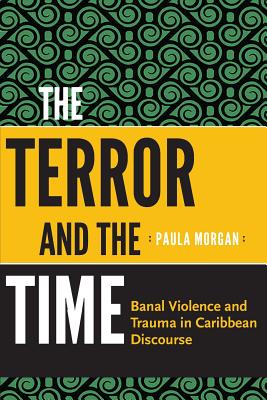 The Terror and the Time
The Terror and the Time
by Paula MorganUniversity of the West Indies Press (Oct 16, 2014)
Read Detailed Book Description
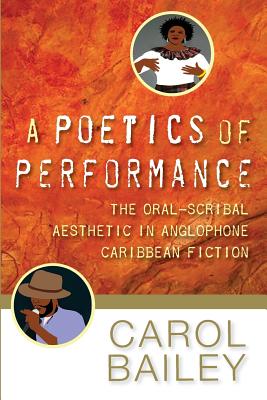 A Poetics of Performance
A Poetics of Performance
by Carol BaileyUniversity of the West Indies Press (Oct 14, 2014)
Read Detailed Book Description
"A Poetics of Performance: The Oral-Scribal Aesthetics in Anglophone Caribbean Fiction explores the impact of orature-performance on Caribbean prose fiction. Arguing that orature-performance is the structuring device for many contemporary novels and short stories, this work extends the critical consensus that Caribbean oral modes infuse all genres of literature from the region. This book also examines how the formal and thematic synergies between Caribbean orature and literature constitute an inter-performative relationship between the region’s literary and performance cultures. Beginning with a retrospective analysis of New Day and The Lonely Londoners, two harbingers of an aesthetic of orality, A Poetics of Performance reads fictions by post-1950s writers Earl Lovelace, Merle Collins, Marie-Elena John, Marlon James and Collin Channer alongside calypso, reggae, and different modes of Caribbean oral storytelling. The analyses elucidate what may be termed the most consequential aspect of Caribbean literary self-fashioning: an "inward turn" to the expressive resources and discursive tools of folk and popular culture. This recuperation has in turn forged a literary tradition grounded, not only in the folk and urban working-class performance cultures, but inevitably in a "woman"-centered poetics."—
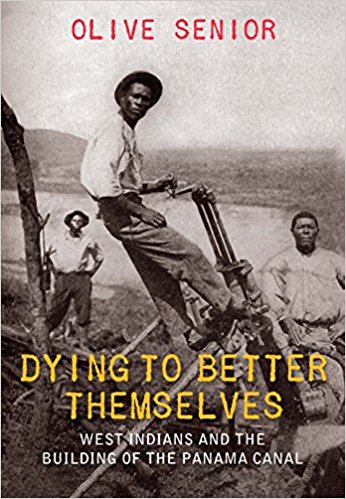 Dying to Better Themselves: West Indians and the Building of the Panama Canal
Dying to Better Themselves: West Indians and the Building of the Panama Canal
by Olive SeniorUniversity of the West Indies Press (Sep 30, 2014)
Read Detailed Book Description
The popular West Indian migration narrative often starts with the Windrush Generation in 1950’s England, but in Dying to Better Themselves Olive Senior examines an earlier narrative: that of the neglected post-emancipation generation of the 1850’s who were lured to Panama by the promise of lucrative work and who initiated a pattern of circular migration that would transform the islands economically, socially and politically well into the twentieth century. West Indians provided the bulk of the workforce for the construction of the Panama Railroad and the Panama Canal, and between 1850 and 1914 untold numbers sacrificed their lives, limbs and mental faculties to the Panama projects. Many West Indians remained as settlers, their descendants now citizens of Panama; many returned home with enough of a nest egg to better themselves; and others launched themselves elsewhere in the Americas as work beckoned. Senior tells the compelling story of the West Indian rite of passage of Going to Panama and captures the complexities behind the iconic Colon Man.Drawing on official records, contemporary newspapers, journals and books, songs, sayings, and literature, and the words of the participants themselves, Senior answers the questions as to who went to Panama, how and why; she describes the work they did there, the conditions under which they lived, the impact on their homelands when they returned or on the host societies when they stayed. Many books have shown the conquest of the Isthmus of Panama by land and sea exploring how the myriad individual lives touched by the construction of the railroad and the canal changed the world as well.
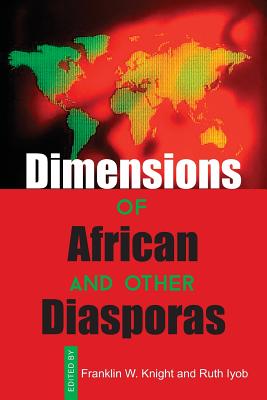 Dimensions of African and Other Diasporas
Dimensions of African and Other Diasporas
by Ruth Iyob and Franklin W. KnightUniversity of the West Indies Press (May 31, 2014)
Read Detailed Book Description
Diasporas comprise an inescapable part of the human experience and few are more interesting and diverse than African diasporas. By providing a panoramic view across time and geographical space this collection of essays illustrates the inherent variability of African, European and Asian diasporic formation. Even when such communities share a common origin, diasporas behave like living organisms that respond sensitively to specific geographical location as well as particular social, political and economic circumstances. Migration constitutes an essential prerequisite for diasporic formation. Once established diasporas assume a life of their own and sometimes form secondary diasporas and their histories make a significant contribution to comparative societal studies.
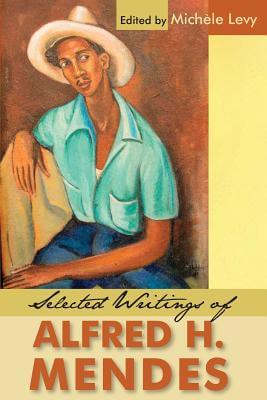 Selected Writings of Alfred H. Mendes
Selected Writings of Alfred H. Mendes
by Alfred Hubert MendesUniversity of the West Indies Press (Oct 01, 2013)
Read Detailed Book Description
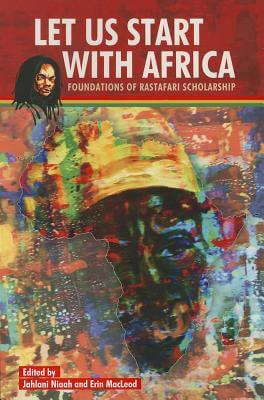 Let Us Start with Africa: Foundations of Rastafari Scholarship
Let Us Start with Africa: Foundations of Rastafari Scholarship
by Jahlani Niah and Erin MacLeodUniversity of the West Indies Press (Aug 20, 2013)
Read Detailed Book Description
The collection Let Us Start with Africa: Foundations of Rastafari Scholarship commemorates the inaugural Rastafari Studies Conference, held in August 2010, and collects, for the first time, some of the main thinkers on Rastafari. It is an exciting and wide-ranging text that provides insights on the last fifty years of investigations into Rastafari.This book offers some of the most significant unpublished work from pioneering scholars of Rastafari as they examine the history, development and future of Rastafari scholarship. With a foreword by renowned Garvey scholar Rupert Lewis and a comprehensive introduction by the editors, this collection is essential reading for students of Rastafari studies, as well as African and Caribbean studies. Contributors: Roy Augier, Barry Chevannes, John Homiak, Erin MacLeod, Rex Nettleford, Jahlani Niaah, Mortimo Planno. Co-published with the Rastafari Studies Initiative, University of the West Indies.
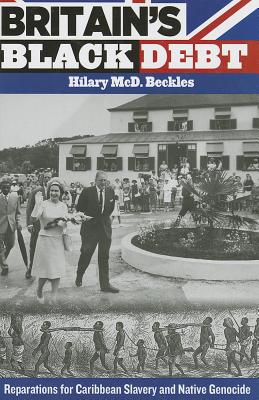 Britain’s Black Debt: Reparations for Caribbean Slavery and Native Genocide
Britain’s Black Debt: Reparations for Caribbean Slavery and Native Genocide
by Hilary BecklesUniversity of the West Indies Press (Apr 30, 2013)
Read Detailed Book Description
Very good condition, paperback
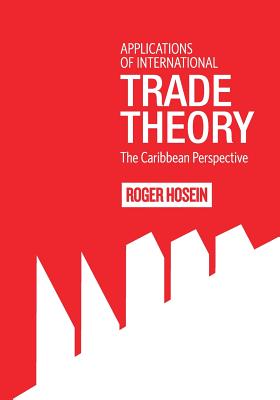 Applications of International Trade Theory: The Caribbean Perspective
Applications of International Trade Theory: The Caribbean Perspective
by Roger HoseinUniversity of the West Indies Press (Apr 24, 2013)
Read Detailed Book Description
Applications of International Trade Theory: The Caribbean Perspective is an applied research-related book essential for undergraduate and postgraduate students, policymakers, and practitioners in the trade and development field. The book is relevant to a range of modules that emphasise the economic environment and perspectives needed to understand Caribbean trading patterns. It provides a holistic and balanced treatment of various approaches within the international trade domain as well as clarity of exposition to guarantee that all readers acquire an ample grasp of the theories, application and policies discussed. Much of the content begins at an introductory level and is suited to readers with little or no previous exposure to the economics surrounding international trade, although the diverse nature of the topics covered inevitably means there is some variation in the level of analysis. Hosein makes use of numerous theoretical constructs with the intention of familiarising readers with some of the core concepts that underpin the complexities surrounding any study on international trade. Although the topics have been arranged with an element of progression, so that the chapters may be read consecutively, the largely self-contained nature of each chapter gives the book a degree of flexibility: chapters can be read selectively, in any order appropriate to the reader’s interest or to the stage reached in a programme study.
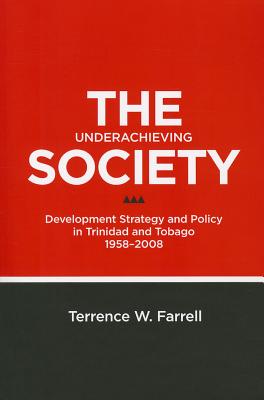 The Underachieving Society: Development Strategy and Policy in Trinidad and Tobago, 1958-2008
The Underachieving Society: Development Strategy and Policy in Trinidad and Tobago, 1958-2008
by Terrence W. FarrellUniversity of the West Indies Press (Dec 17, 2012)
Read Detailed Book Description
This work discusses the effectiveness of the sets of policies employed by the government over a fifty-year period spanning 1958 to 2008 in the effort to foster the growth and development of the economy. It concludes that Trinidad and Tobago has underperformed in respect of its growth and development. Compared with other countries more or less similarly placed around 1960, Trinidad and Tobago has not achieved in key areas of health-care delivery, education access, and income and wealth, notwithstanding its substantial resources of oil and gas. Historically, Trinidad and Tobago’s economy cycles from boom to bust depending on what happens to the price of oil. The carefree, undisciplined lifestyle of most of the population is occasionally perturbed by a paroxysm of social unrest. Downturns are accompanied by ritual incantations by government officials of the need for "diversification" to reduce the country’s dependence on oil and the energy-based industries, the formation of new committees, task forces and boards, and considerable hand-wringing and angst about the "sustainability" of government fiscal operations. Seemingly bold new initiatives and projects are announced, and all the while people wait and secretly hope for a quick turnaround in the price of oil, ammonia, methanol and natural gas so that rents will again begin to accrue, government spending programmes can restart and the fete can resume. Trinidad and Tobago will not achieve its potential for development unless and until this cycle is broken.
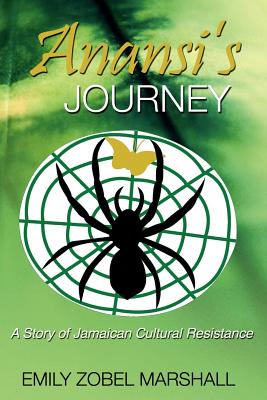 Anansi’s Journey: A Story of Jamaican Cultural Resistance
Anansi’s Journey: A Story of Jamaican Cultural Resistance
by Emily Zobel MarshallUniversity of the West Indies Press (Jan 30, 2012)
Read Detailed Book Description
Anansi the spider is the trickster folk hero West African slaves transported to the Caribbean. He symbolizes key aspects of Afro-Caribbean culture and is celebrated as a vital link with an African past. Anansi stories, in which the small spider turns the tables on his powerful enemies through cunning and trickery, are now told and published worldwide.This highly original and innovative book traces Anansi’s journey from West Africa to Jamaica, where he is celebrated as a national folk hero. The uniqueness of this book lies in its accumulation of new data on Anansi in both Ghana and Jamaica and in its theoretical analysis of Anansi’s potential as a resource for resistance against oppression. As no sustained analysis of the Anansi tales has been undertaken with such ambition or on such a scale, this is an investigation dedicated to filling the current deficit in our understanding of this fascinating folk phenomenon.
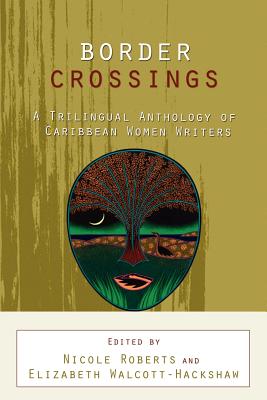 Border Crossings: A Trilingual Anthology of Caribbean Women Writers
Border Crossings: A Trilingual Anthology of Caribbean Women Writers
by Nicole Roberts and Elizabeth Walcott-HackshawUniversity of the West Indies Press (Nov 16, 2011)
Read Detailed Book Description
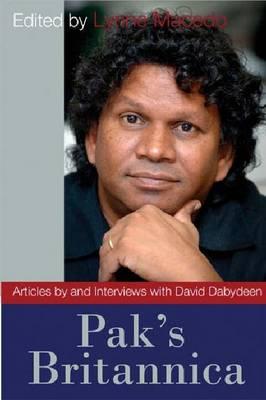 Pak’s Britannica: Articles by and Interviews with David Dabydeen
Pak’s Britannica: Articles by and Interviews with David Dabydeen
by Lynne MacedoUniversity of the West Indies Press (Sep 16, 2011)
Read Detailed Book Description
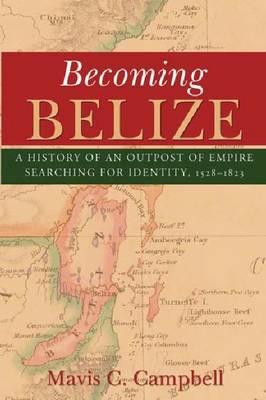 Becoming Belize: A History of an Outpost of Empire Searching for Identity, 1528-1823
Becoming Belize: A History of an Outpost of Empire Searching for Identity, 1528-1823
by Mavis C. CampbellUniversity of the West Indies Press (Aug 31, 2011)
Read Detailed Book Description
Belize, formerly British Honduras, had a different beginning from most other British Caribbean colonies and was not dependent on sugar production but on the exploitation of the forests for timber. Unlike most books on Belize, this study explores in some detail the early Spanish attempts to colonize the area called Belize today and identifies many of the problems Spain encountered.
Campbell persuasively posits that Belizean history can be pushed much further back from the traditional starting point of either the mid-seventeenth or early eighteenth century. The book provides a compelling thesis on the alliance between the British logwood cutters (the Baymen) and the Miskito Indians who together formed the major counterbalance to Spain’s power. The work also explores how social relations under forestry slavery were marked by less outward resistance and violence than that which obtained under the British sugar/slave economies of the region.
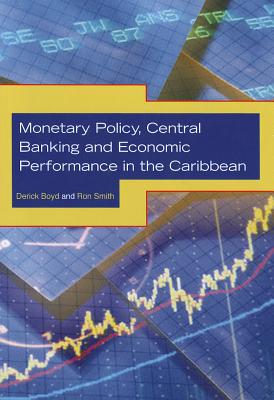 Monetary Policy, Central Banking and Economic Performance in the Caribbean
Monetary Policy, Central Banking and Economic Performance in the Caribbean
by Derick Boyd and Ron SmithUniversity of the West Indies Press (Apr 27, 2011)
Read Detailed Book Description
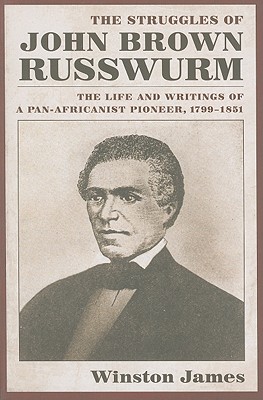 The Struggles of John Brown Russwurm: The Life and Writings of a Pan-Africanist Pioneer, 1799-1851
The Struggles of John Brown Russwurm: The Life and Writings of a Pan-Africanist Pioneer, 1799-1851
by Winston JamesUniversity of the West Indies Press (Oct 01, 2010)
Read Detailed Book Description
"If I know my own heart, I can truly say, that I have not a selfish wish in placing myself under the patronage of the American Colonization Society; usefulness in my day and generation, is what I principally court."
"Sensible then, as all are of the disadvantages under which we at present labour, can any consider it a mark of folly, for us to cast our eyes upon some other portion of the globe where all these inconveniences are removed where the Man of Colour freed from the fetters and prejudice, and degradation, under which he labours in this land, may walk forth in all the majesty of his creation—a new born creature—a ’Free Man’"
—John Brown Russwurm, 1829.
John Brown Russwurm (1799-1851) is almost completely missing from the annals of the Pan-African movement, despite the pioneering role he played as an educator, abolitionist, editor, government official, emigrationist and colonizationist. Russwurm’s life is one of "firsts": first African American graduate of Maine’s Bowdoin College; co-founder of "Freedom’s Journal," America’s first newspaper to be owned, operated, and edited by African Americans; and, following his emigration to Africa, first black governor of the Maryland section of Liberia. Despite his accomplishments, Russwurm struggled internally with the perennial Pan-Africanist dilemma of whether to go to Africa or stay and fight in the United States, and his ordeal was the first of its kind to be experienced and resolved before the public eye.
With this slim, accessible biography of Russwurm, Winston James makes a major contribution to the history of black uplift and protest in the Early American Republic and the larger Pan-African world. James supplements the biography with a carefully edited and annotated selection of Russwurm’s writings, which vividly demonstrate the trajectory of his political thinking and contribution to Pan-Africanist thought and highlight the challenges confronting the peoples of the African Diaspora. Though enormously rich and powerfully analytical, Russwurm’s writings have never been previously anthologized.
The Struggles of John Brown Russwurm is a unique and unparalleled reflection on the Early American Republic, the African Diaspora and the wider history of the times. An unblinking observer of and commentator on the condition of African Americans as well as a courageous fighter against white supremacy and for black emancipation, Russwurm’s life and writings provide a distinct and articulate voice on race that is as relevant to the present as it was to his own lifetime.
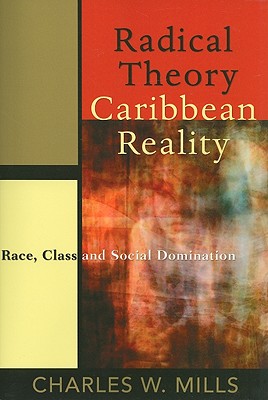 Radical Theory, Caribbean Reality: Race, Class and Social Domination
Radical Theory, Caribbean Reality: Race, Class and Social Domination
by Charles W MillsUniversity of the West Indies Press (May 31, 2010)
Read Detailed Book Description
This work is a collection of articles written over many years as well as unpublished new scholarship that explores the common themes of race and class in the Caribbean and overcoming social domination. The essays consider abstract political theory (Marxism and critical and race theory) and also focus on specific Caribbean issues and events such as the portrayals of the Jamaican left, the collapse of the Grenada Revolution and the significance of the affirmation of personhood in a racist society, but all share a concern with overcoming of social domination and are ’radically’ oriented. The title has a double meaning insofar as it signifies both the application of radical theory to the Caribbean reality, and the way in which that reality has too often collided with the theory, revealing its inadequacies. As Mills explains, ’The overall aim is to elucidate some classic subjects and themes in radical theory, both generally and with local Caribbean application, and to map in the process a trajectory of intellectual development not peculiar to my own history but traced by many others of my generation also’.
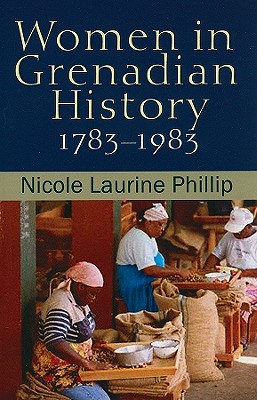 Women in Grenadian History, 1783-1983
Women in Grenadian History, 1783-1983
by Nicole Laurine PhillipUniversity of the West Indies Press (May 03, 2010)
Read Detailed Book Description
This is a pioneering work on the experiences of Grenadian women over two centuries of British colonialism, "Gairyism" and socialist revolution. It moves away from a narrow approach of highlighting outstanding figures and revolutionary women to one that encompasses the experiences of women of all walks of life to present a picture of Grenadian society through the eyes of women estate workers, domestics, teachers, civil servants, doctors, lawyers, revolutionaries and politicians.
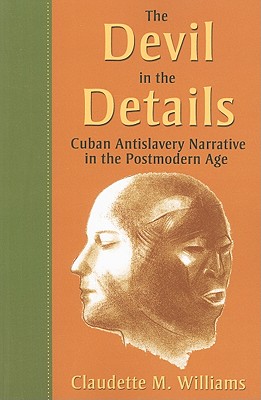 The Devil in the Details: Cuban Antislavery Narrative in the Postmodern Age
The Devil in the Details: Cuban Antislavery Narrative in the Postmodern Age
by Claudette M. WilliamsUniversity of the West Indies Press (May 03, 2010)
Read Detailed Book Description
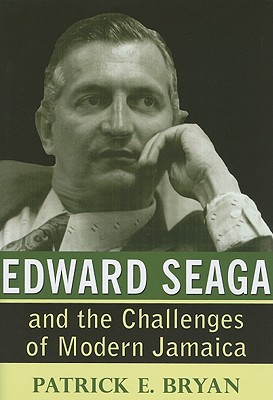 Edward Seaga and the Challenges of Modern Jamaica
Edward Seaga and the Challenges of Modern Jamaica
by Patrick E. BryanUniversity of the West Indies Press (Nov 01, 2009)
Read Detailed Book Description
This is the first scholarly biography of Edward Philip George Seaga, retired prime minister of Jamaica (1980-1989) and former leader of the Jamaica Labour Party (1974-2005). Patrick Bryan examines Seaga in light of the twentieth-century history of Jamaica, which experienced the challenges of race, colour, economic dependence, the transition from the British colonial period to independence in 1962, and the challenges of creating a Jamaican national state and separate cultural identity. Although the study focuses on Edward Seaga, the historical forces that shaped Jamaica’s history are central, in particular the way in which he confronted these forces. In placing Seaga in historical perspective, this work strikes a seasoned and balanced analysis of the man and is neither an apologia nor iconoclastic. Based on a variety of primary sources, government records, interviews and secondary sources, the author paints a compelling portrait of a complex man, a contradictory mixture of idealism and pragmatism, but, above all, a Jamaican nationalist who had a profound impact on Jamaican politics, tourism, culture and finance.
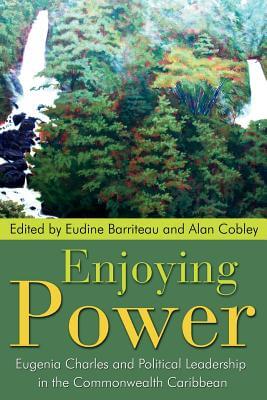 Enjoying Power: Eugenia Charles and Political Leadership in the Commonwealth Caribbean
Enjoying Power: Eugenia Charles and Political Leadership in the Commonwealth Caribbean
by Eudine Barriteau and Alan CobleyUniversity of the West Indies Press (Aug 05, 2009)
Read Detailed Book Description
Dame Eugenia Charles was the female prime minister in the Caribbean. The nine essays in this book capture critical elements of her life and times and her motivations as prime minister of Dominica. She was at once feared, vilified and admired, even by her friends, yet all she ever did, as considered by her, was to act for her country within the best traditions of a social and political conservatism. The contributors, even when they are at their most critical, reveal a grudging admiration for her as a purpose-driven female leader, who never acted out of malice or vindictiveness. Dame Mary Eugenia Charles is portrayed as an unselfish but strong-willed prime minister, who politically settled her country after a period of difficult internal problems and crises.
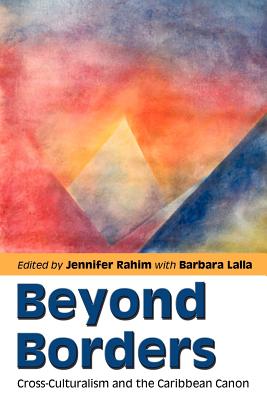 Beyond Borders: Cross-Culturalism and the Caribbean Canon
Beyond Borders: Cross-Culturalism and the Caribbean Canon
by Jennifer RahimUniversity of the West Indies Press (May 08, 2009)
Read Detailed Book Description
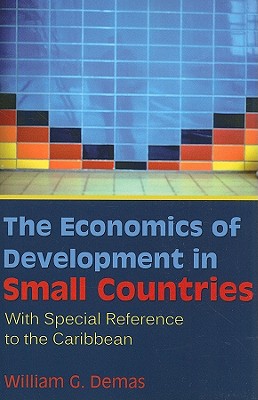 The Economics of Development in Small Countries: With Special Reference to the Caribbean
The Economics of Development in Small Countries: With Special Reference to the Caribbean
by William G. DemasUniversity of the West Indies Press (May 06, 2009)
Read Detailed Book Description
Deals with the problems faced in analyzing the economics of small countries and seeks to apply these concepts to West Indian economies. This title states that economic development and the achievement of self-sustained growth cannot be considered in isolation from the size of the country.
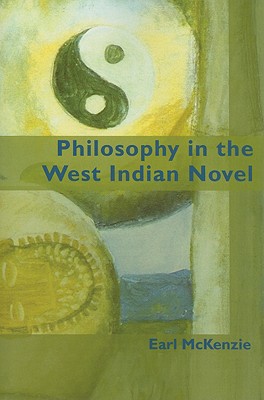 Philosophy in the West Indian Novel
Philosophy in the West Indian Novel
by Earl McKenzieUniversity of the West Indies Press (Nov 21, 2008)
Read Detailed Book Description
Earl McKenzie’s pioneering philosophical study of the West Indian novel is based on three main assumptions: first, that philosophy is a reflection on the fundamental questions we can ask about ourselves and our world; second, that literature, particularly the novel, is the best method yet devised to provide a ’human face’ to these reflections; and third, Caribbean philosophy is at present embedded in other forms of cultural expression, like literature, and these forms need to be excavated to reveal what lies within. McKenzie examines ten novels by George Lamming, Roger Mais, Wilson Harris, V.S. Naipaul, Orlando Patterson, Jean Rhys, Erna Brodber, Lakshmi Persaud, Earl Lovelace and Jamaica Kincaid, each selected to represent differences in geography, chronology, ethnicity and gender. In this cross-section of novels, McKenzie identifies ancestral influences from the philosophies of Europe, Africa and India, and shows how West Indian fiction embodies ideas from several areas of philosophy, including metaphysics, epistemology, philosophy of education, social and political philosophy, ethics, feminist philosophy, and philosophy of literature.
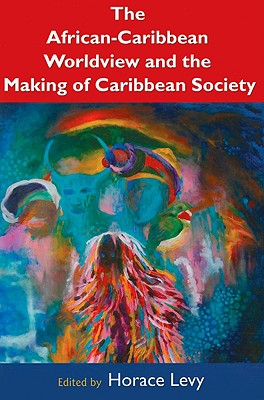 The African Caribbean Worldview and the Making of Caribbean Society: History, Biology, Culture
The African Caribbean Worldview and the Making of Caribbean Society: History, Biology, Culture
by Horace LevyUniversity of the West Indies Press (Nov 20, 2008)
Read Detailed Book Description
This book brings together contributions from a broad spectrum of authors on the most challenging issue for the Caribbean - against the dominating efforts of European colonizers and their descendants, the long-standing struggle of Caribbean people to fashion a culture and society that would give full space to the African heritage of the majority while accommodating their new and evolving circumstances. The book presents contemporary readings that contestation in the areas of Caribbean religion, education, language, music, race, sexual behavior in a time of the AIDS pandemic, and the economy. It grew out of a conference held in 2006 in honor of the scholarship of internationally acclaimed Professor Alston Barrington Chevannes, professor of social anthropology at the University of the West Indies, Jamaica. This book is unique, therefore, in both the breadth of its focus and range of topics as well as the specific issues considered, most essays being useful case studies in particular fields. The geographical span includes Jamaica, Martinique, Trinidad and Tobago, Guyana, indeed the Caribbean as a whole. There is perhaps no other publication with such an aim, range and relevance. The theme of a Caribbean world view makes this book a pioneering contribution to Caribbean studies. The collection also contains an autobiographical essay by Professor Chevannes.
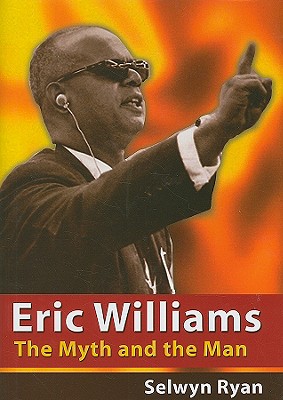 Eric Williams: The Myth and the Man
Eric Williams: The Myth and the Man
by Selwyn RyanUniversity of the West Indies Press (May 01, 2008)
Read Detailed Book Description
Eric Williams: The Myth and the Man seeks to illuminate the political career of one of the Caribbean’s most elusive figures, Eric Williams, the first prime minister of Trinidad and Tobago. Selwyn Ryan uses a wide array of primary sources, letters, interviews, material from the Public Records Office in the United Kingdom, the State Department Records in the United State of America and the Eric Williams Memorial Collection in Trinidad and Tobago, and demonstrates a strong mastery of secondary sources to provide a sophisticated political analysis of Williams’ role in Trinidadian and Caribbean politics. The manuscript focuses on Williams’ entry into politics and his tenure as prime minister from 1956 until his death in 1981. Ryan also provides an interesting analysis of Williams’ seminal work Capitalism and Slavery and his role as a scholar.The book is a distillation of research and writings that have spanned two decades. The author brings a unique perspective to the work as both a scholar and one who has studied, criticized and been active in Trinidad politics as chairman of the Public Utilities Commission, Trinidad and Tobago.
Also check out Eric Williams: The Myth and the Man by Selwyn Ryan
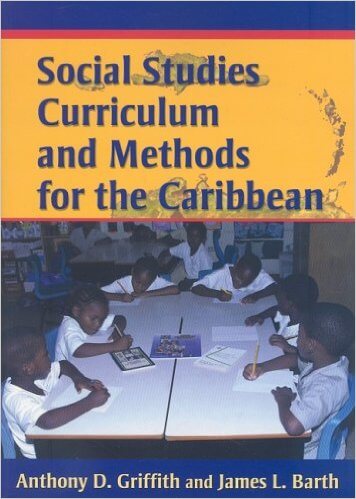 Social Studies Curriculum and Methods for the Caribbean
Social Studies Curriculum and Methods for the Caribbean
by Anthony D. Griffith and James L. BarthUniversity of the West Indies Press (Sep 01, 2006)
Read Detailed Book Description
Developments in the teaching and learning of social studies over the years point to a conceptual focus on the active study/investigation of significant social issues and concerns. While knowledge of these issues is important, equally so are the requisite skills and competencies that are required to enable the student to examine and analyse the issues and to make decisions about them. This handbook is therefore intended to project the teaching and learning of social studies as the development and acquisition of skills for the study of social issues or phenomena. These skills relate to gathering information, analysing and evaluating information, critical thinking, problem solving and decision making, as well as social and interpersonal skills. The focus is on activities, practice and authentic learning. The content is organized into thirteen chapters, which may be used in sequence or can, equally well, stand alone. The chapters can also be used individually in workshops or seminars. "Social Studies Curriculum" is an essential book for teachers in training in the teacher-training institutions throughout the Caribbean, as well as for students in degree programmes in social studies in the Schools of Education at the University of the West Indies. Classroom teachers of social studies will also find the book very useful as a reference source.
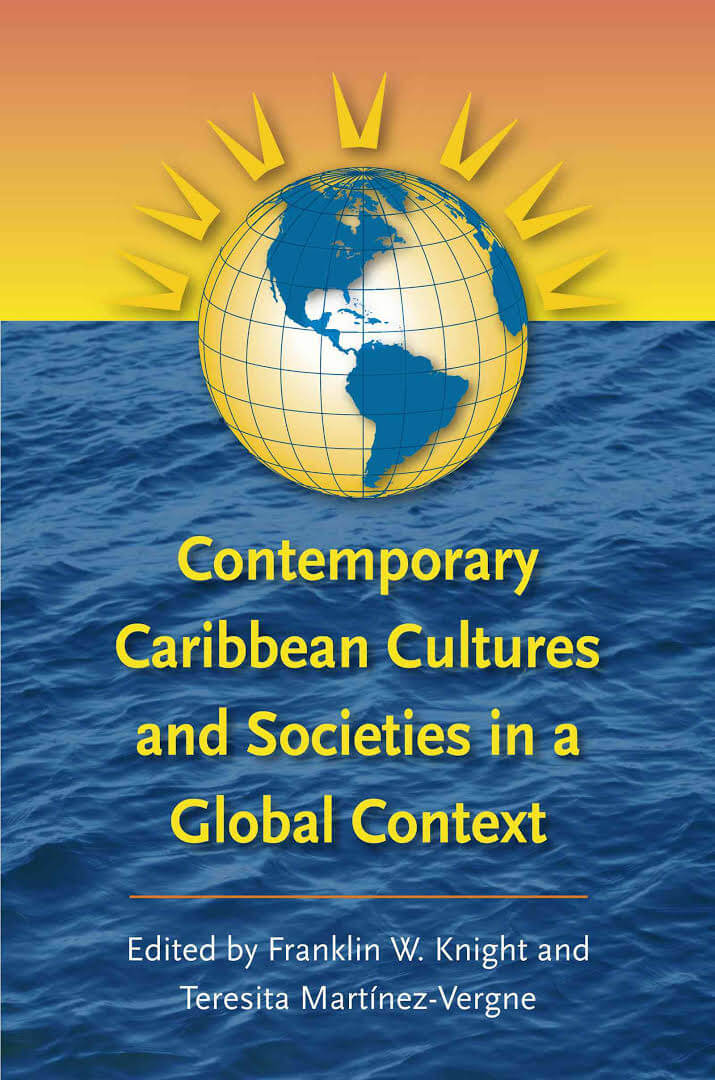 Contemporary Caribbean Cultures and Societies in a Global Context
Contemporary Caribbean Cultures and Societies in a Global Context
by Teresita Martinez-Vergne and Franklin W. KnightUniversity of the West Indies Press (Nov 01, 2005)
Read Detailed Book Description
The Caribbean ranks among the earliest and most completely globalized regions in the world. From the first moment Europeans set foot on the islands to the present, products, people, and ideas have made their way back and forth between the region and other parts of the globe with unequal but inexorable force. An inventory of some of these unprecedented multidirectional exchanges, this volume provides a measure of, as well as a model for, new scholarship on globalization in the region.Ten essays by leading scholars in the field of Caribbean studies identify and illuminate important social and cultural aspects of the region as it seeks to maintain its own identity against the unrelenting pressures of globalization. These essays examine cultural phenomena in their creolized forms—from sports and religion to music and drink—as well as the Caribbean manifestations of more universal trends—from racial inequality and feminist activism to indebtedness and economic uncertainty. Throughout, the volume points to the contending forces of homogeneity and differentiation that define globalization and highlights the growing agency of the Caribbean peoples in the modern world.Contributors:Antonio Benitez-Rojo (1931-2004)Alex Dupuy, Wesleyan UniversityJuan Flores, City University of New York Graduate CenterJorge L. Giovannetti, University of Puerto RicoAline Helg, University of GenevaFranklin W. Knight, The Johns Hopkins UniversityAnthony P. Maingot, Florida International UniversityTeresita Martinez-Vergne, Macalester CollegeHelen McBain, Economic Commission for Latin America & the Caribbean, TrinidadFrances Negron-Muntaner, Columbia UniversityValentina Peguero, University of Wisconsin-Stevens PointRaquel Romberg, Temple University
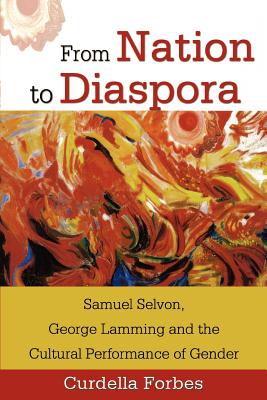 From Nation to Diaspora: Samuel Selvon, George Lamming and the Cultural Performance of Gender
From Nation to Diaspora: Samuel Selvon, George Lamming and the Cultural Performance of Gender
by Curdella ForbesUniversity of the West Indies Press (Sep 30, 2005)
Read Detailed Book Description
This book is the first comprehensive treatment of gender in the works of Samuel Selvon and George Lamming, two important West Indian writers who are rarely analysed together. It demystifies nationalist discourses and discourses of creolization showing that these have masked gender inequalities and complexities in West Indian society, and that the maskings are in turn part of a larger masking of neocolonial threads within nationalism. Forbes situates the fictions of Selvon and Lamming within the wider field of West Indian social thought and practice, and she demonstrates that gender is foundational within West Indian revolutionary action - a fact consistently ignored in mainstream discourses, including feminist ones. These two West Indians’ treatments of gender belong to a revolutionary poetics of liberation in West Indian culture but are deeply compromised by the nationalist engagements and the nationalist context of the 1950s-1970s. Lamming’s treatment of it, anticipates and problematizes the concepts of postmodernity and postmodernism, which have entered West Indian discourse via postcolonial discourse and the work of migration on West Indian theory and criticism. The book concludes by looking towards these discourses that are now playing major roles in West Indian thought. Forbes links West Indian nationalism and the fictions of Selvon and Lamming into a dialogue with the concepts of diasproa, postmodernity and postmodernism, raising the issue of how the latter have impacted on the representation and formation of West Indian gender identities. She then considers the implications of these discourses for West Indian writing, West Indian theory and, above all, West Indian survival and identity in a postmodern, essentially neocolonized world.
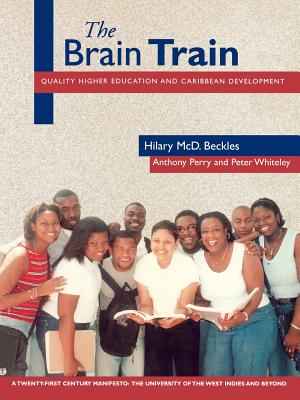 The Brain Train: Quality Higher Education and Caribbean Development
The Brain Train: Quality Higher Education and Caribbean Development
by Hilary Beckles, Anthony Perry, and Peter WhiteleyUniversity of the West Indies Press (Sep 05, 2000)
Read Detailed Book Description
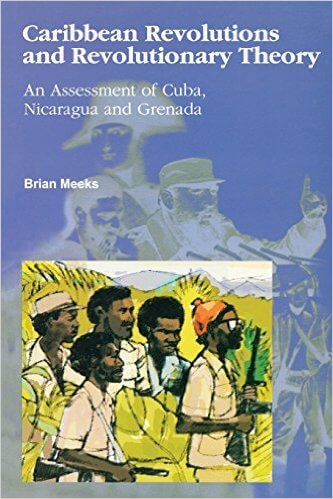 Caribbean Revolutions and Revolutionary Theory: An Assessment of Cuba, Nicaragua, and Grenada
Caribbean Revolutions and Revolutionary Theory: An Assessment of Cuba, Nicaragua, and Grenada
by Brian MeeksUniversity of the West Indies Press (Sep 05, 2000)
Read Detailed Book Description
A sophisticated comparative study of the Cuban, Nicaraguan and Grenadian revolutions, using techniques derived from J. S. Mill and perfected by Theda S. Skopol. Despite the unfulfilled promise of all three revolutions, they do suggest that people have the potential to make history and affect positive changes. Originally published by Macmillan Caribbean 1993, this classic contains a new preface by Anthony Maingot, Florida International University.
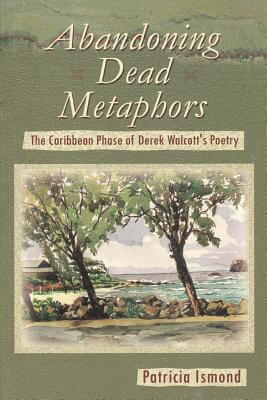 Abandoning Dead Metaphors: The Caribbean Phase of Derek Walcott’s Poetry
Abandoning Dead Metaphors: The Caribbean Phase of Derek Walcott’s Poetry
by Patricia IsmondUniversity of the West Indies Press (Sep 05, 2000)
Read Detailed Book Description
Awarded the Nobel Prize for Literature in 1992, Derek Walcott is the most important West Indian poet writing in English today, and his success has inspired many aspiring Caribbean writers. He began his career divided between his driving commitment to the revolutionary cause of his native Caribbean and his strong ties to a Western literary tradition. In his works he has studied the conflict between the heritage of European and West Indian culture. Abandoning Dead Metaphors is a critical appreciation of the works produced in Walcott’s Caribbean phase (1946-1981). The poetry of this phase contains most of the seminal ideas and values that underlie his total achievement. This study closely examines Walcott’s definitive use of metaphor, through which he conducts a deeply philosophical discourse focusing on the juxtaposition of his concern with a regional history of negation and his immersion in the Western literary and cultural tradition of the colonizer. Studying the works of this period also allows for a full exposure of Walcott’s engagement with the landscape, culture and society of the region. Ismond’s work is essential reading for students of Caribbean literature and scholars of Ne
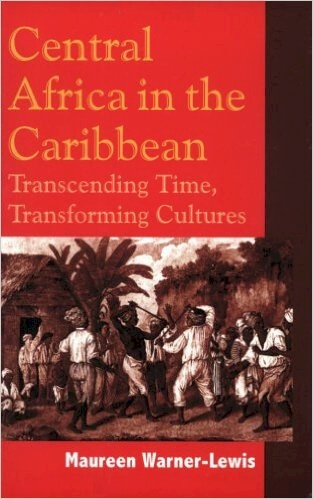 Central Africa in the Caribbean: Transcending Space, Transforming Culture
Central Africa in the Caribbean: Transcending Space, Transforming Culture
by Maureen Warner-LewisUniversity of the West Indies Press (Sep 05, 2000)
Read Detailed Book Description
A sweeping, multidisciplinary study that analyzes and identifies some of the main lineaments of the Central African cultural legacy in the Caribbean. This long-awaited study is based on more than three decades of research and analysis. Scholars will be fascinated with the transatlantic comparative data. The author identifies Central African cultural forms in those areas settled in Africa by the Koongo, Mbundu, and Ovimbunde. (The modern-day locations of these three ethnic groups are present-day Congo, Zaire and Angola.) The book illuminates Caribbean thought and practice by comparison with Central African worldview and custom. The work is based on extensive primary and secondary sources, oral interviews, letters and diaries, folktales, proverbs and songs. In its multidisciplinary approach and depth, it highlights the debate concerning the origin and transformation of cultural forms in the Caribbean against a larger background of African culture, economy, colonialism, slavery, emancipation and independence. With its Central African focus, the book is a pioneering perspective on Caribbean cultural forms. A noted linguist, the author uses her knowledge of the most functional languages
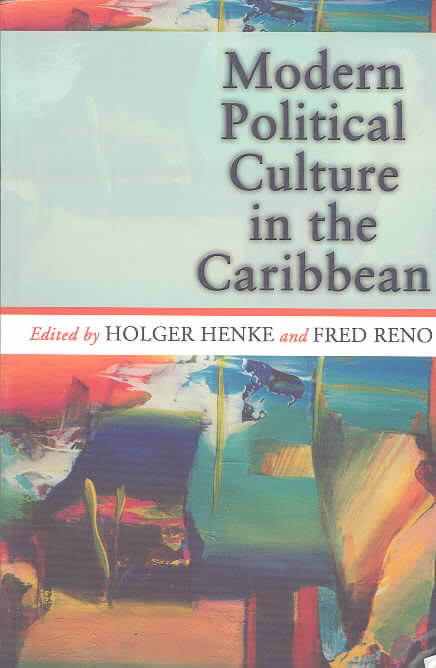 Modern Political Culture in the Caribbean
Modern Political Culture in the Caribbean
by Holger Henke and Fred RenoUniversity of the West Indies Press (Sep 05, 2000)
Read Detailed Book Description
This contribution to the study and analysis of Caribbean politics explores the political culture of the Caribbean in order to understand the regional differences. The contributors, renowned internationally for their expertise in Caribbean studies, explore the topic from their varied cultural experiences and offer a new dimension to the study of political culture.
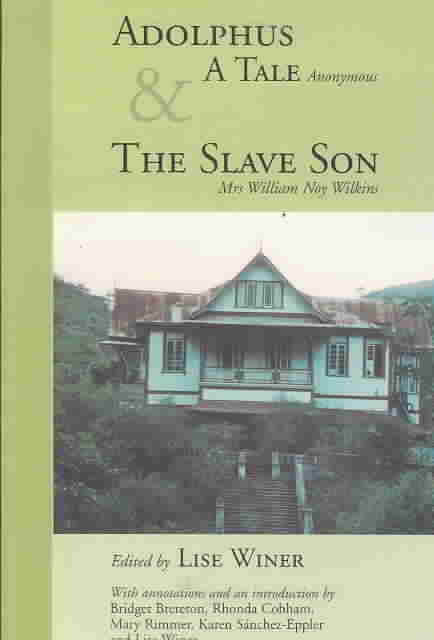 Adolphus, a Tale (Anonymous) & the Slave Son (The Caribbean Heritage Series)
Adolphus, a Tale (Anonymous) & the Slave Son (The Caribbean Heritage Series)
by Lise WinerUniversity of the West Indies Press (Sep 05, 2000)
Read Detailed Book Description
The Caribbean Heritage Series is designed to publish historic re-publications of Trinidad Literary Roots and comprises four Trinidadian novels published between 1838 and 1907. This second volume in the series presents two novels, Adolphus, a Tale and The Slave Son. Adolphus was first published in 1853 and was probably written by a Trinidadian mulatto, thus making it the first Trinidadian, and possibly the first West Indian, novel written by a mulatto and the first novel written by someone born and reared in Trinidad. A dramatic nineteenth-century tale, originally published in the newspapers of the day, Adolphus, traces the adventures of a mulatto son of a black slave women raped by a white man. Raised by a kind Spanish-Trinidadian padre, Adolphus grows into a handsome, well-educated, noble character. Later falling in love with Antonia Romelia, he manages to rescue her from a villainous kidnaper and they flee to Venezuela where they are free to marry. The Slave Son was originally published in 1854 by Chapman and Hall, and according to the author’s foreword, it was inspired by Harriet Beecher Stowe’s Uncle Tom’s Cabin and was written to support the abolitionist movement in the Unit
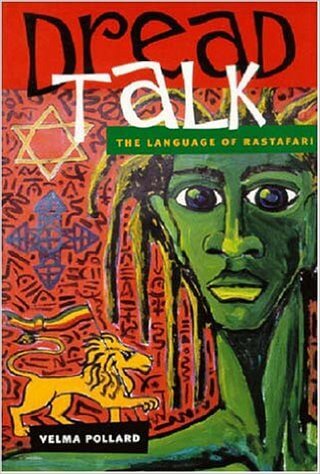 Dread Talk: The Language of Rastafari
Dread Talk: The Language of Rastafari
by Velma PollardUniversity of the West Indies Press (Sep 05, 2000)
Read Detailed Book Description
Book by Pollard, Velma
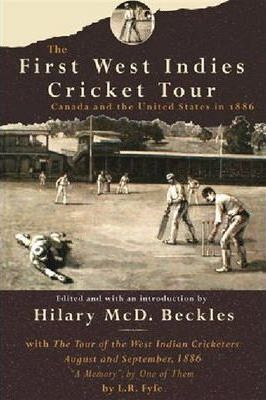 The First West Indies Cricket Tour: Canada and the United States in 1886
The First West Indies Cricket Tour: Canada and the United States in 1886
by Hilary BecklesUniversity of the West Indies Press (Sep 05, 2000)
Read Detailed Book Description
The West Indies Cricket Team, formed in 1884, made its first overseas tour to Canada and United States. The first match was played against the Montreal Cricket Club, 16-17 August 1886. This book speaks to the Canadian and American beginning of the West Indian cricket culture that emerged a century later as a powerful performance force of the game.
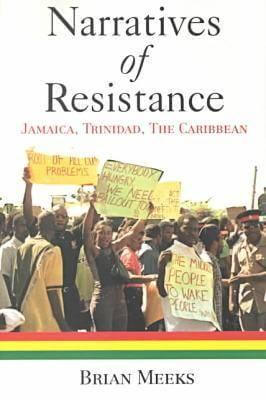 Narratives of Resistance: Jamaica, Trinidad, the Caribbean
Narratives of Resistance: Jamaica, Trinidad, the Caribbean
by Brian MeeksUniversity of the West Indies Press (Sep 01, 2000)
Read Detailed Book Description
An analysis of contemporary social, political and intellectual resistance to hegemony in Caribbean societies. Beginning with the Henry Rebellion in 1960, Brian Meeks shows how popular resistance to domination was manifested in Jamaica and Trinidad until the end of the 20th century.
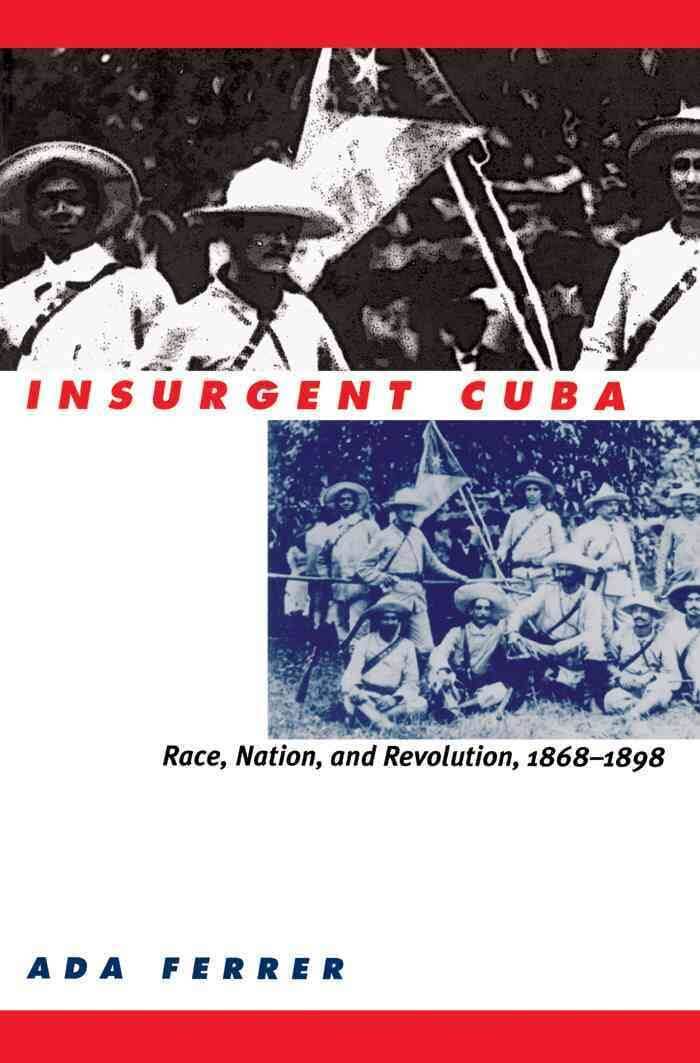 Insurgent Cuba: Race, Nation, and Revolution, 1868-1898
Insurgent Cuba: Race, Nation, and Revolution, 1868-1898
by Ada FerrerUniversity of the West Indies Press (Jan 01, 1999)
Read Detailed Book Description
In the late nineteenth century, in an age of ascendant racism and imperial expansion, there emerged in Cuba a movement that unified black, mulatto, and white men in an attack on Europe’s oldest empire, with the goal of creating a nation explicitly defined as antiracist. This book tells the story of the thirty-year unfolding and undoing of that movement.Ada Ferrer examines the participation of black and mulatto Cubans in nationalist insurgency from 1868, when a slaveholder began the revolution by freeing his slaves, until the intervention of racially segregated American forces in 1898. In so doing, she uncovers the struggles over the boundaries of citizenship and nationality that their participation brought to the fore, and she shows that even as black participation helped sustain the movement ideologically and militarily, it simultaneously prompted accusations of race war and fed the forces of counterinsurgency.Carefully examining the tensions between racism and antiracism contained within Cuban nationalism, Ferrer paints a dynamic portrait of a movement built upon the coexistence of an ideology of racial fraternity and the persistence of presumptions of hierarchy.
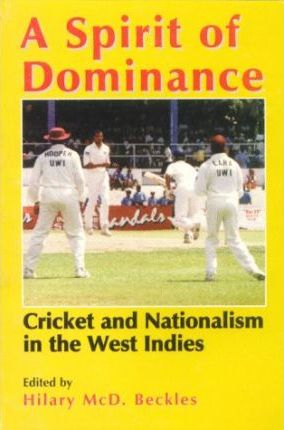 A Spirit of Dominance: Cricket and Nationalism in the West Indies; Essays in Honour of ’Viv’
A Spirit of Dominance: Cricket and Nationalism in the West Indies; Essays in Honour of ’Viv’
by Hilary BecklesUniversity of the West Indies Press (Jun 20, 1905)
Read Detailed Book Description
The essays in this volume are the revised texts of an eight-part public lecture series on West Indian cricket history and culture organized by the Centre for Cricket Research at the University of the West Indies, Cave Hill. An introductory essay by the editor, an interview with Viv Richards and two commentaries are also included. "Together they represent a tribute to Viv, as well as a substantial contribution to the historiography of West Indies cricket. While this material will serve students in the classroom well, we are sure that the public who participated in and enjoyed these lectures will wish to have this text in their possession for further engagement. It is therefore offered in this spirit of continuing dialogue." Introduction
